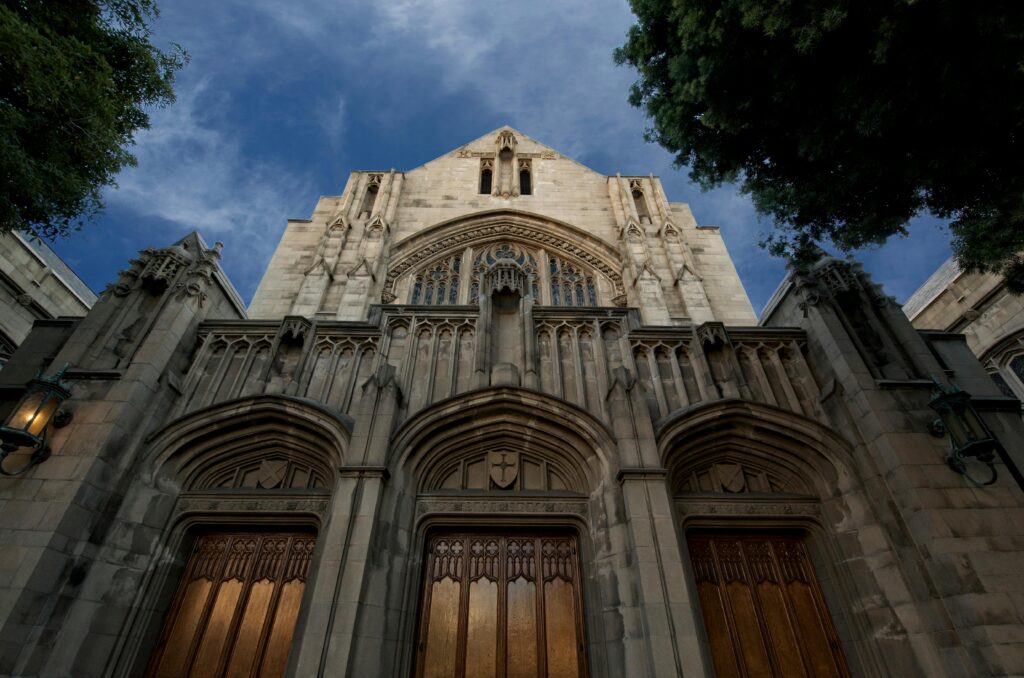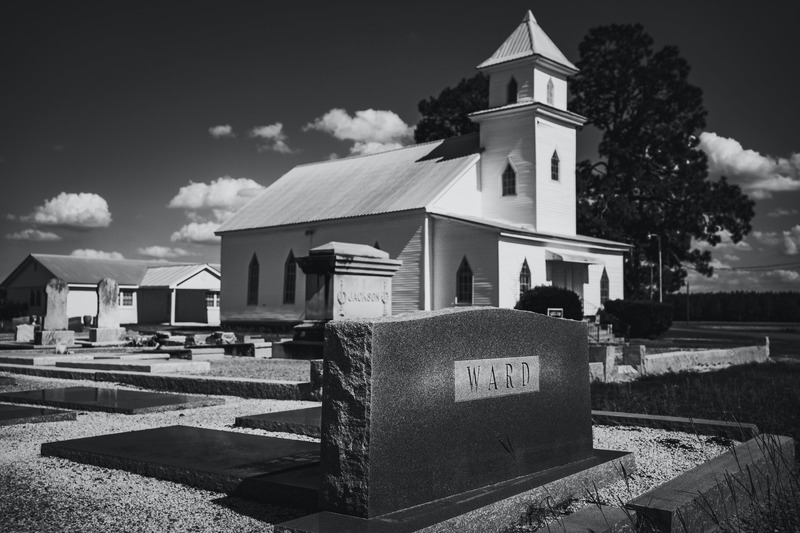Presbyterian and Methodist churches are some of the denominations that dominate the world today. They may share some beliefs and greatly differ in others but this does not make either of them a bad denomination. They are all after a common goal; to preach the Gospel of Christ to all nations and win souls to Jesus Christ.
“Therefore go and make disciples of all nations, baptizing them in the name of the Father and of the Son and the Holy Spirit, and teaching them to obey everything I have commanded you. And surely I am with you always, to the very end of the age.”
Matthew 28:19-20
So, whether we go out to the nations as Presbyterians or as Methodists, the assignment and the goal remain the same.

Jesus Christ desires that the church grow and add in number with each passing day. The many Christian denominations that we see today have not come into existence by mistake. They exist because it is the will of God and part of His plan to build up the church around the world. The denominations were not birthed to bring about division and hatred among Christians but to reach out to as many people as possible so that Christ’s church may grow.
Ephesians 4:10-13 reads, “He who descended is the very one who ascended higher than all the heavens, in order to fill the whole universe. So Christ Himself gave the apostles, the prophets, the evangelists, the pastors, and teachers, to equip his people for works of service, so that the body of Christ may be built up until we all reach unity in the faith and in the knowledge of the Son of God and become mature, attaining to the whole measure of the fullness of Christ.”
Christ empowered some to be apostles and others to lead as prophets in their different churches or denominations. Denominations that are led by apostles may be different from those led by prophets but they are all Christ’s church. Some denominations are led by evangelists while others are led by pastors.
Read Also: Baptist Vs Pentecostal – Things You Need To Know
These categories of church leaders can make churches around the world seem different. However, if they are serving one God and worshipping one God, they are one. Jesus Christ is their head and they are like His branches that spread out for a common goal; winning souls to Christ. So, as we seek to explore the similarities and differences between Presbyterians and Methodists, we must understand that they serve a common purpose.
What is a Presbyterian?
Presbyterians trace their roots to the Protestant Reformation that happened in the 16th century. They are believed to be among some of the earliest Reformed immigrants to America at the time of the Revolutionary War. A French lawyer, John Calvin, and John Knox played an important role in shaping the Presbyterian church governance, Calvinistic theology, and the exclusion of prescribed forms of worship in their churches. They believe that their most important standard is the Westminster Confession of Faith (1645-1647), a theological statement of Calvinism.

Presbyterian churches are run by representative assemblies known as Presbyteries. Each presbytery is led by an elder, known as a presbyter. Presbyters have been given the freedom to teach their members God’s Word, preach, worship, and even administer sacraments to their members. There are no Bishops in Presbyterian churches and the elders only differ in roles; they are all considered important and equal.
Some of their theological emphases include; God’s Sovereignty, the authority of Scriptures over tradition, and salvation by grace through faith in Christ. Presbyterian’s doctrine is shaped by the Calvinism theology.
What Is a Methodist?
Methodists are a group of Protestants who trace their roots to the writings, life, and teachings of John Wesley. John’s brother, Charles Wesley, and George Whitefield were also among the first leaders of the Methodist Movement.
Read Also: Baptist vs Presbyterian Beliefs – What You Need To Know
These leaders were named Methodists thanks to the methods (religious disciplines) they used in living out their faith journey. Methodism started as a renewal movement within the Church of England and spread out across the Atlantic.
Methodist churches focus on personal faith, social justice, the authority of Scripture over tradition, and sacraments. They believe that anyone who believes in God receives salvation, drawing their inspiration from John 3:16. Their church government is administrative.
Local churches are led by administrative councils that serve under the local church pastor. A bishop is the head of the church; he guides the pastor who serves under him at the local level.
Methodists focus on Wesleyan theology; this theology teaches that religion is in the heart of believers and is not expressed through outward display. It emphasizes practical faith and enforces strict discipline on spiritual matters.
Methodists also emphasize personal holiness and salvation; one who believes in God is saved while one who doesn’t believe in God perishes.

Methodism shares the same perspectives with other protestant denominations as regards the death and resurrection of Jesus Christ for the salvation of mankind, the deity of Jesus Christ, God’s holiness, and mankind’s wickedness.
However, even though they affirm the authority and inspiration of Scripture, they hold a low belief that the Bible is inerrant.
Similarities Between Presbyterians and Methodists
The Holy Trinity
Presbyterians and Methodists share the belief in the Holy Trinity; They believe that God the Father, Son, and Holy Spirit, is One True God in three persons.
Read Also: Can Baptists Dance? – What Does The Bible Say?
Salvation Through Faith in Christ
Both Presbyterians and Methodists emphasize the centrality of Jesus Christ in the salvation of mankind. They believe that salvation is a gift from God and is only possible through God’s grace. Additionally, they hold that salvation can only be received through faith in Jesus Christ as Lord and Savior.
Authority of the Bible
Both Presbyterians and Methodists believe that the Bible is the inspired and authoritative Word of God. They hold that the Bible is the ultimate guide for their beliefs, worship, and practices.
Origin
Even though their founders are different people with different theological concepts, both Methodists and Presbyterians trace their roots back to the Protestant Movement.
Perspective on Catholic Beliefs
Both Presbyterians and Methodists are against Catholic beliefs and completely reject/oppose any association with them. They split from the church of England since they believed that it echoed most of the beliefs of the Roman Catholic church. For instance, they reject the belief that the bread and the wine taken during communion often change into the body and blood of Jesus Christ respectively. They also reject the practice of praying to the saints who died long ago or asking them to intercede for them before God. Methodists and Presbyterians reject the idea of praying to Mary, the mother of Jesus, and focus their faith on God, Jesus, and the Holy Spirit.

Major Differences Between Methodist vs Presbyterian
Salvation
The major distinguishing factor between Presbyterians and Methodists is their perspective on salvation. Presbyterians believe that it is God who decides who He will save and who He will not save. They believe that once God saves a person, that person will be saved forever and ever. On the other hand, Methodists believe that anyone can receive salvation as long as they believe in God. They believe that even though a believer receives salvation by believing in God, they can lose their salvation if they don’t align their ways with God’s will.
Read Also: Did Judas Go To Heaven?
Baptism
Presbyterians view baptism with a lot of significance. According to them, when a believer is baptized, they are adopted into God’s family and they become members of the body of Christ. They believe that baptism is significant in the cleansing of sin and is a declaration that we are ready to live as disciples of Jesus Christ.
Presbyterians baptize their believers by pouring or sprinkling water on them even though they are also open to baptism by immersion. On the other hand, Methodists view baptism as a covenant between God and the person being baptized. According to them, baptism marks the beginning of a new life in God.
Methodists embrace the concept of baptism to both infants and adults and are open to all forms of baptism such as baptism by immersion, sprinkling, and pouring.
Atonement
Presbyterians believe that Jesus Christ died for the salvation of a specific group of people; the elect. On the other hand, Methodists believe that Jesus died for the redemption and salvation of all mankind.
Worship
Presbyterians follow the ‘Book of Discipline’ as their manual for worship while Methodists use the Directory of Worship’ as their guide during worship.
Read Also: Can We Go To Heaven With Tattoos?
Church Governance
Presbyterian churches are governed by representative assemblies called presbyteries and local churches are led by elders. Methodists, on the other hand, employ a hierarchical system where a pastor works under a bishop at local churches. Pastors of Methodist churches are often ‘called’ or hired and given the responsibility of leading the church at the local level.

Concept of Sanctification
Presbyterians believe that a believer can only be sanctified at death while Methodists believe that a believer can be sanctified through grace even before they die.
Doctrine on Sin
Presbyterians recognize and affirm the origin of sin and believe in the depravity of mankind. On the other hand, Methodists do not believe in the depravity of man even though they also affirm the origin of sin.
In conclusion, both Presbyterians and Methodists emerged from the Protestant Movement before they split into different denominations with different founders. Even though they are different in some aspects, they also have many things in common.
